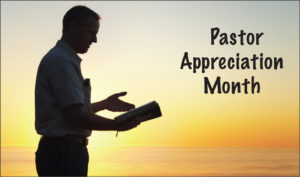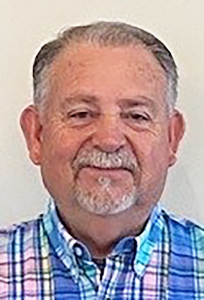Bivocational pastors walk tightrope in order to answer God’s call
By Lonnie Wilkey
Editor, Baptist and Reflector
lwilkey@tnbaptist.org
 ROCKWOOD — Roger Britton knows what it is like to balance ministry with a secular job and still find time for wife, children, personal time and numerous other things that whittle away at a person’s time.
ROCKWOOD — Roger Britton knows what it is like to balance ministry with a secular job and still find time for wife, children, personal time and numerous other things that whittle away at a person’s time.
He has done it for more than 40 years, including the last 25 years as pastor of Whites Creek Baptist Church in Rockwood.
Now, Britton is in a position to help other bivocational ministers across Tennessee. He assumed the role of bivocational ministries specialist for the Tennessee Baptist Mission Board in March and will remain as pastor of Whites Creek Baptist.
Britton understands what it means to balance sermon preparation, hospital visits, funerals and weddings, time with spouse and children, personal time and time alone with God in addition to the responsibilities of a secular job.
Overwhelmed
He also knows what it is like to be so overwhelmed by the pressures of being a bivocational pastor that he was ready to quit early on in his first pastorate at Whites Creek. He previously had served other churches in music and children’s staff positions. He reflected that people loved him when he was a music and children’s minister but not as much when he accepted the role of pastor.
“They didn’t love my dreams of building, of seeing people saved, of changing the way they did their programs, of changing their church. It was tough,” he admitted.
He actually had his resignation letter written and he called Bill Bargiol (now deceased) who was director of missions for Big Emory Baptist Association at the time. “I told him I was resigning and that there was nothing he could do to make me change my mind.”
Bargiol finally convinced Britton to allow him to speak to the congregation for several Wednesday nights. As a result, Bargiol pulled the church together and Britton stayed. “I’m here today because of Bill Bargiol,” he affirmed.
Conference changed ministry
He is also at Whites Creek because an elderly deacon at the church read an article in the Baptist and Reflector about an upcoming conference for bivocational pastors and their spouses. Britton recalled that the deacon encouraged him and his wife, Kathy, to go and that the church would pay for it.
He was willing to go but had to convince his wife who was not in favor of the idea. She finally relented and they attended the meeting at Fall Creek Falls State Park.
When they arrived, they found about 10 other bivocational couples who felt the same way they did.
“They had the same aspirations, dreams, desire for God’s kingdom and the same hurts that we had,” Britton said. “They were going through the same struggles.”
 He recalled that the conference broke up into two groups — men and women.
He recalled that the conference broke up into two groups — men and women.
“Kathy did not want to go. She wanted to remain with me, but she met with the women and found they had things in common. When she came out of that room, she was different, and when we left the conference, we were different,” Britton related.
He recalled that when they returned to church on Sunday after the weekend conference, the church members immediately noticed a change in them both.
“Our total personality was different and it was because we had been so stressed,” he said.
“That first bivocational pastor and wives conference changed our view of ministry,” he affirmed. Since then, they have missed only one conference in 24 years.
He noted that over the years he and Kathy stopped “needing the vitamin” as much as they needed to “be the vitamins” for other pastors and wives who were struggling. They began to pray before the retreat that God would lead them to the pastors and wives who were ready to quit the ministry.
And, he noted that since they began praying for that to happen, God has put anywhere from one to five pastors and their wives in their path at the retreat.
“We pour ourselves into them at that meeting every moment that we get, every chance we get,” Britton said. “We take them to eat. We buy their supper. We do everything that we can. We talk to them, we pray with them, we encourage them and when we leave we get their phone numbers and remain in contact with them.”
In his new role, Britton, along with the Bivocational Ministers Council, is already planning next year’s retreat which is scheduled for Jan. 27-29 in Pigeon Forge. More details about the event will be released later, he said.
He expressed appreciation for the Council (of which he was a member for many years) and the members who comprise it. Britton is looking for their help to strengthen bivocational ministry across the state.
Because of COVID-19, the annual retreat was not held this year. There are 13 banquet and program events for bivocational pastors and their wives scheduled throughout the state in April and May.
For more information about the banquets, contact Beth Nichols at bnichols@tnbaptist.org.
Understand the needs
Britton is excited and eager as he begins his new role with the TBMB because he understands the role of and need for bivocational pastors. He noted that between 60 to 65 percent of Baptist churches in Tennessee are served by bivocational pastors.
He encouraged churches to be understanding of the many things that a bivocational pastor must juggle and to be supportive. Don’t ask how you can help the pastor or wait to be asked. Most church members know what needs to be done around the church, Britton said. “Just do what needs to be done.”
 Britton also expressed the need for churches to show their pastor and his wife they are loved and appreciated. Britton noted that Whites Creek began observing Pastor Appreciation Month several years ago.
Britton also expressed the need for churches to show their pastor and his wife they are loved and appreciated. Britton noted that Whites Creek began observing Pastor Appreciation Month several years ago.
One of the best ways is to give the pastor and his wife the weekend off with pay and provide them with a weekend getaway at the church’s expense, he said.
Showing your pastor and his wife they are loved and appreciated can do wonders for not only them but for the church as well, Britton said.
In his case, Britton went from being ready to quit to having a renewed passion to help Whites Creek grow, and the people responded.
When they arrived at the church, they had about 12 for Sunday School and 32 in preaching and those numbers included four from his family, Britton said. The church began to grow and even with the interruption of COVID-19 a year ago, the church is back in the 50s in Sunday School and more than a hundred for preaching, he added.
In addition, the church will have between 50 and 75 people on Wednesday nights. “God is really blessing.”
Britton has a heart for bivocational pastors and churches and would like to see them get the help and support they need to thrive in their ministry setting.
He observed that at times bivocational pastors feel like “the Lone Ranger” and are alone in their ministry. He knows that was true because he experienced it.
“I am out of that mode now. I know I need help,” Britton said. “And, by getting that help and support, I am a better minister. My goal is to help them unsaddle their one-man horse and to join the team.”
Roger “Sing” Oldham, pastor engagement specialist for the the Tennessee Baptist Mission Board observed that “it’s often said that the small business is the backbone of the American economy. It is equally true that the neighborhood church and the church at the crossroads are the backbone of effective Kingdom ministry.
“Bivocational and/or single-staff pastors bear unique burdens. Encouraging, equipping and assisting these faithful ministers of the gospel is one of the most strategic ministries the TBMB undertakes,” Oldham said. “With little fanfare, and usually with scant recognition, these market-place leaders collectively minister to millions of people in their communities and reach tens of thousands new believers with the gospel of Jesus Christ year after year. We praise the Lord for each one,” he added. B&R

